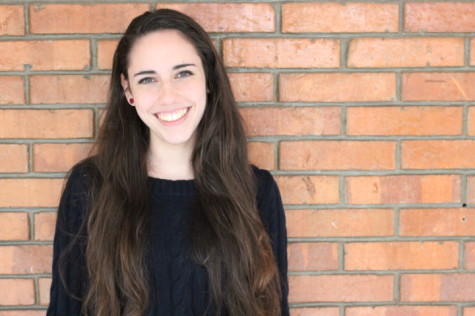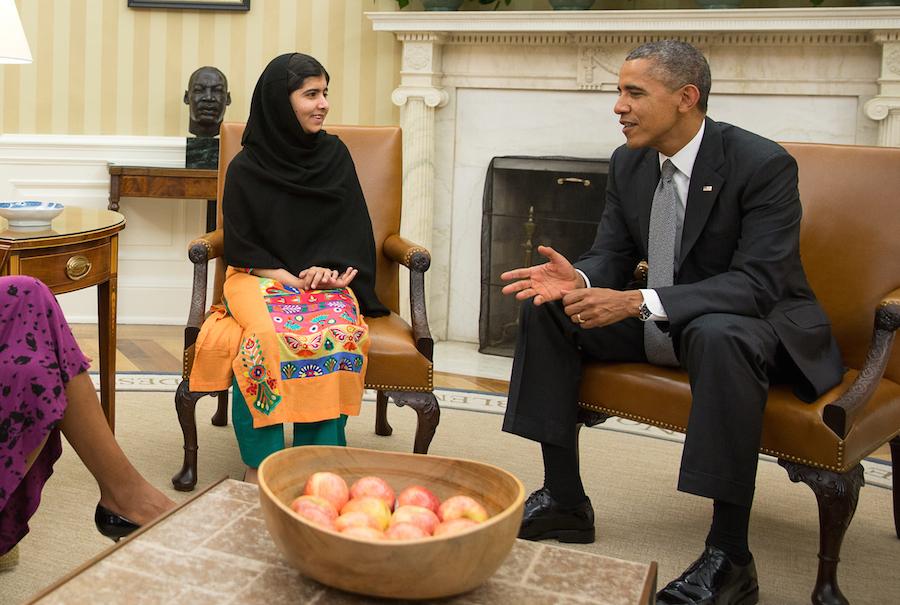The youngest Nobel laureate and her future plans
Amidst headlines in international newspapers about recent events in Pakistan—of sectarian violence, political instability, and widespread poverty—the country made headlines again last week, but this time with positive news: Malala Yousafzai, the 17-year-old human rights activist, became the youngest person awarded the Nobel Peace Prize. She shared the honor with the Indian activist Kailash Satyarthi, who was also recognized by the Nobel Committee as an advocate for children’s rights and education.
In the words of Karachi-based editor and writer for the Herald, Razeshta Sethna, “Pakistan without its bold and brilliant women is nothing.” In regards to news stories about troubling events in Pakistan, she said “Those so-called bad stories sell more, don’t they? […] Positive stories that show hope, courage, strength don’t make it into the international media as much as they should.”
Yousafzai’s fame began back in 2009 when she wrote an anonymous online diary for the BBC about her experience as a girl living in the Swat Valley under the control of the Pakistani Taliban. When extremists in the region vowed to ban girls from attending school, she became an international spokesperson for female rights, putting her own life in danger. In 2012, Yousafzai was shot by a Taliban gunman as she was seated on a bus on her way to school. Having recovered, she is now finishing her education in Birmingham, England. While the Pakistani army has since taken the Swat Valley from the Taliban, the region still struggles to gain stability.
Similar to her turbulent and challenging battle to advocate for what she believes in, there have been mixed responses to Yousafzai winning the Peace Prize. Many people, such as Zia Uhr Rehman, a Karachi-based journalist who writes for the New York Times, have expressed their pride after having witnessed the prize awarded to a “symbol of the entire society of Swat—and Pakistan—that has struggled against the Taliban and extremists.” Similarly, Lahore resident Aziz Sohail described what she felt as “one of those crazy moments when I feel proud to be from this crazy, messy, ridiculous and complicated nation.”
While Yousafzai has been widely praised by some sections of the Pakistani public as well as by politicians such as Prime Minister Nawaz Shawif, who named her the “pride of Pakistan,” many Pakistanis believe she is a Western agent on a mission to shame her country. Yousafzai’s 2013 book, I Am Malala, was banned in private schools in Pakistan for allegedly not showing enough respect to Islam. At the same time, students in her hometown protested against naming a school after her, suggesting that it would prove a security risk.
Another concern that has been raised by the media is Yousafzai’s age, and whether she can make a global impact, given she is unable to return to her home country where some revile her. For now Yousafzai is one of the world’s most prominent faces of moderate Islam, the center of an international advocacy operation for girl’s education, and the author of two best-selling books. She remains an open critic of the Taliban and the culture of Pakistan in which women are rarely granted the same rights as men. In regards to wearing burqas, for example, she said in a recent interview, “I realized that it just took away my freedom, and that’s why I stopped wearing it.” Yousafzai has also notably critiqued American military actions in her home country: when she met with US President Obama last year, she told him, “Instead of soldiers, send books. Instead of sending weapons, send pens.”
Yousafzai often expresses her aspiration to become a leader in Pakistan, like one of her heroes, the first female prime minister, Benazir Bhutto. However, her current goal is to focus on attending university at Oxford. In a speech at Birmingham last week, she called the Nobel Peace Prize “an encouragement for me to go forward and believe in myself,” but then added, “though it’s not going to help me in my tests and exams.”
Sources: nytimes.com, huffingtonpost.com

This is Paula's second year writing for The Talon, where she works as the Editor-in-Chief. Unlike some of her fellow Talonistas, she cannot think of anything...








